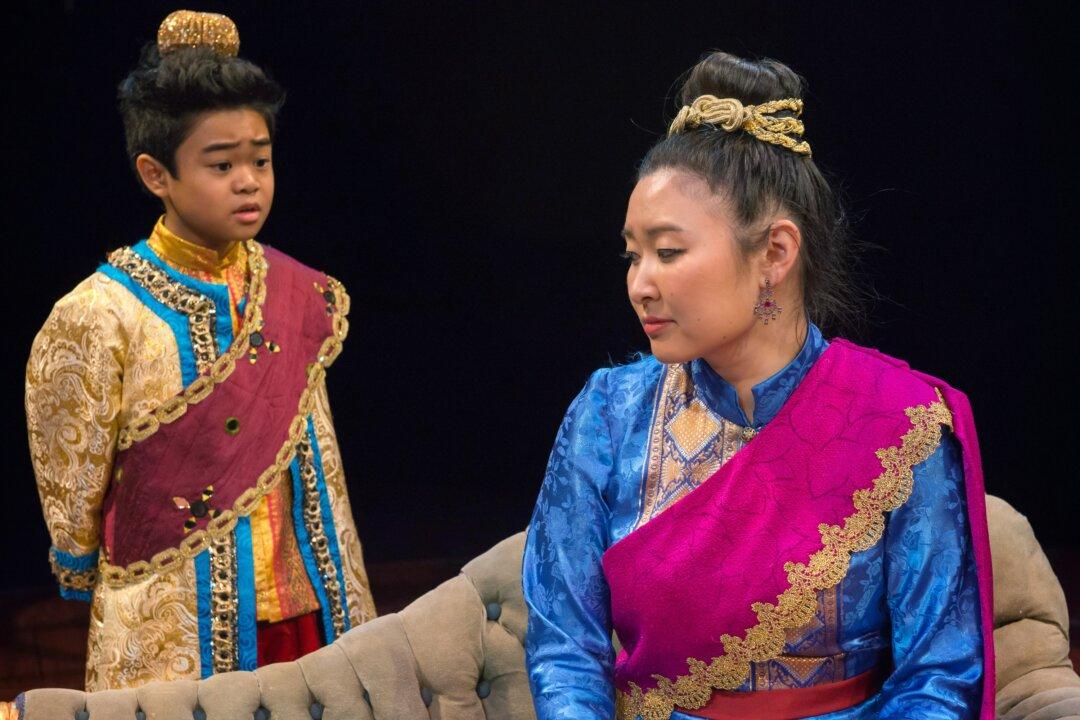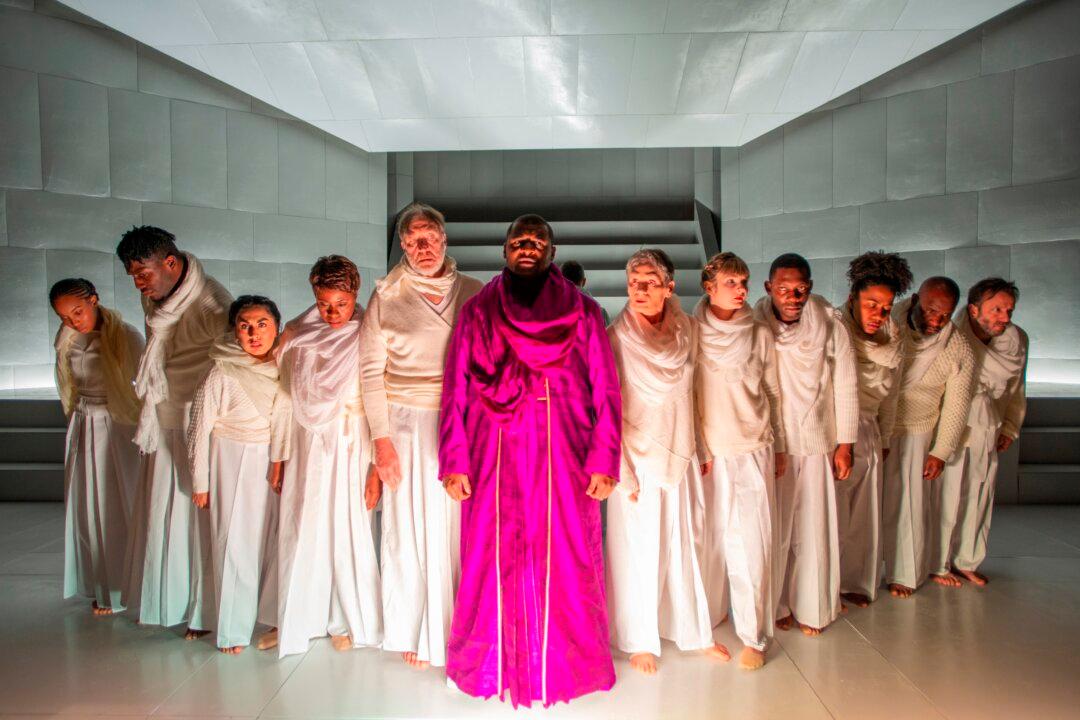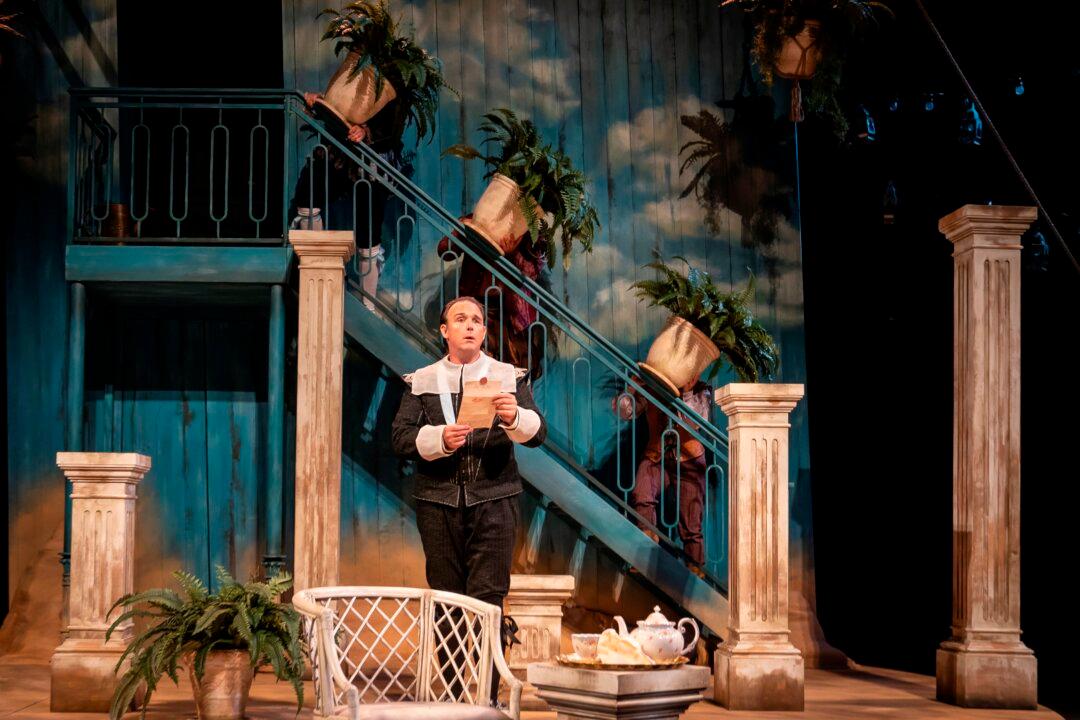Chicago—Despite our hearing vocal echoes of Yul Brynner and Deborah Kerr from the Academy Award-winning movie, director Nick Bowling’s “The King and I” at the Marriott Theatre is fresh and vital. From the opening whistles to the closing deep bow honoring the King of Siam, it is tight, moving, and, well, marvelous.
Widow Anna Leonowens (Heidi Kettenring) and her son, Louis (Michael Semanic), arrive in Siam in 1860. Anna is there to teach the children of the King of Siam (Andrew Ramcharan Guilarte) and, according to his wishes, bring the country into the modern era.
Upset that the king has not lived up to his agreement to provide her a house of her own outside of the palace, Anna wants to leave her new appointment; however, she is won over by the king’s many charming children.
Anna soon becomes a favorite in the palace and befriends the king’s many wives. In particular, she sympathizes with the king’s newest wife, Tuptim (Megan Masako Haley), who is a present from the Burmese king to his Siamese counterpart.
Tuptim, however, is secretly in love with Lun Tha (Devin Ilaw), the young man who escorted her from Burma. Their love, if discovered, would be considered treason.
Despite Anna’s happiness in the palace, she persistently hints about the king’s broken promise to her—she needs her own space. After months without this problem being resolved, Anna again decides to leave.
But the head wife, Lady Thiang (Kristen Choi), convinces Anna to stay because she is desperately needed. The king fears his country risks becoming a British protectorate, and he doesn’t know what to do, Lady Thiang says.
Letting go of some of her pride, Anna agrees to help and even agrees to pretend that her ideas about how to mitigate the situation come from the king, so as not to hurt his pride. She hatches a plan to a hold a banquet—in British dress, with British food, dance, and manners to win over the British envoy. The evening will even include entertainment—a play written by Tuptim—based on the American novel “Uncle Tom’s Cabin.”







